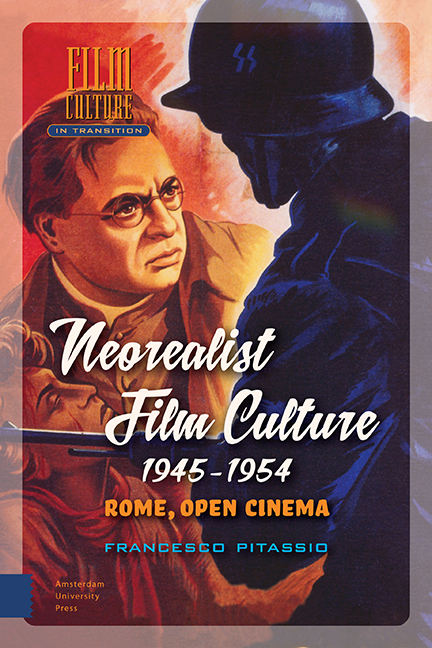Book contents
- Frontmatter
- Contents
- Acknowledgements
- Introduction: An Uncertain Direction. Neorealist Cinema and Transitional Culture
- 1 Locating the Real: National, International, and Transnational Neorealism
- 2 Lies of Memory: Post-war Culture, Remembrance, and Documentary Filmmaking
- 3 Looking at the Images: Neorealist Visual Culture
- 4 Actors, Non-professional Actors, Starlets, and Stars: Film Performance in the Neorealist era
- Bibliography
- About the Author
- Name Index
- Film Index
2 - Lies of Memory: Post-war Culture, Remembrance, and Documentary Filmmaking
Published online by Cambridge University Press: 21 November 2020
- Frontmatter
- Contents
- Acknowledgements
- Introduction: An Uncertain Direction. Neorealist Cinema and Transitional Culture
- 1 Locating the Real: National, International, and Transnational Neorealism
- 2 Lies of Memory: Post-war Culture, Remembrance, and Documentary Filmmaking
- 3 Looking at the Images: Neorealist Visual Culture
- 4 Actors, Non-professional Actors, Starlets, and Stars: Film Performance in the Neorealist era
- Bibliography
- About the Author
- Name Index
- Film Index
Summary
Abstract
Neorealism is credited with providing a truthful depiction of warfare and its aftermath. This depiction is based on a new kind of cinematic image: rather than telling a story, the image bears witness. However, neorealism was oblivious of anything related to the Fascist era. The chapter considers neorealism as cultural trauma, i.e. the work performed by a community that is feeling endangered in order to tighten its bonds. Neorealist culture, which helped build post-war Italy, discarded experiences from the past such as modernism or propaganda documentary. However, by looking at seldom-considered cases such as the early work of Michelangelo Antonioni or documentaries depicting the Resistance, we discover that these traditions did survive. They provide us with a litmus test of the role that neorealism played in forging a collective memory based on victimhood.
Keywords: Collective memory; cultural memory; Michelangelo Antonioni; trauma; documentary cinema; modernism
Displaced Memories
Right in the middle of the most celebrated neorealist masterpiece, Paisan, Francesca (Maria Michi), a young Roman girl, approaches a drunken American GI, Fred (Joseph Garland Moore Jr.), and drags him to a shady hotel. She is a prostitute, and as they settle in the room, she undresses and attempts to seduce him. He is both intoxicated and disgusted and does not react. Instead, he plunges into remembering the day when he entered Rome together with the US Army, in June 1944. The crowd had welcomed the liberators, and a young, decent, bourgeois girl invited him to her flat, supplying him with water and offering a momentary rest from the war's fatigue. He could never forget the girl, Francesca was her name, he blabbers, but never got back to the place. After a few months in occupied Rome, all girls are alike to him, all corrupt and on sale: no one can equal that first encounter. While he is recounting the episode, the prostitute realises it is her that the GI had met six months beforehand. But he is too drunk to recognise her. So she makes him promise to go to Francesca's place and leaves him in the room. The day after, Francesca waits in vain in front of her house. The soldier leaves Rome and bitterly comments to his mates on the umpteenth chick that tried to approach him the night before.
- Type
- Chapter
- Information
- Neorealist Film Culture, 1945–1954Rome, Open Cinema, pp. 141 - 208Publisher: Amsterdam University PressPrint publication year: 2019



